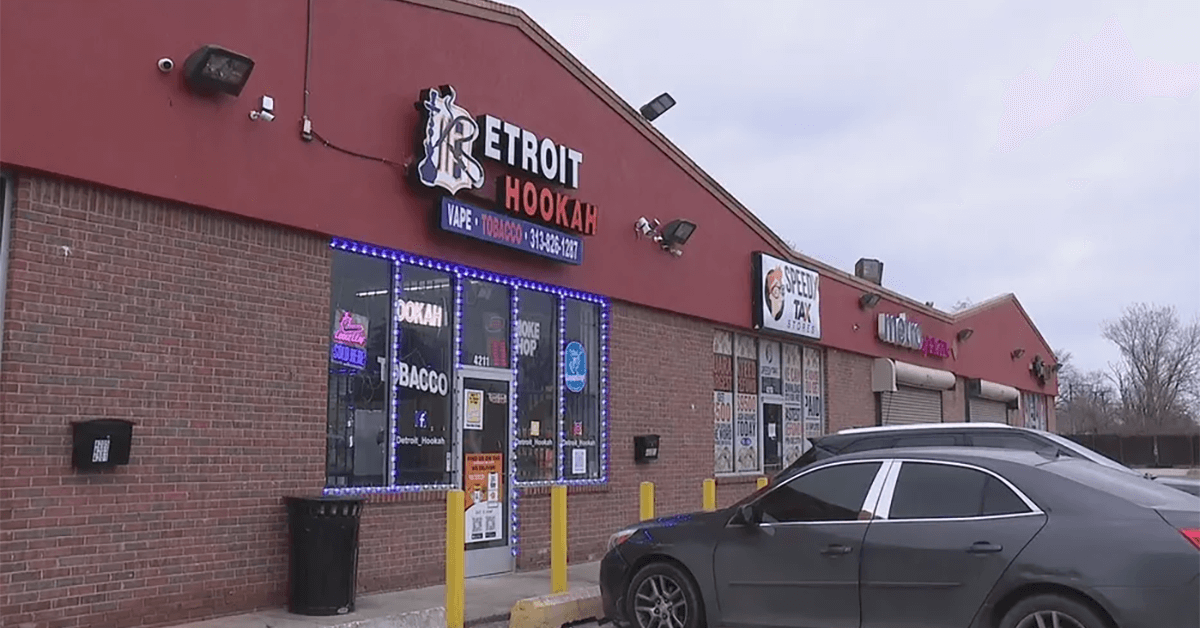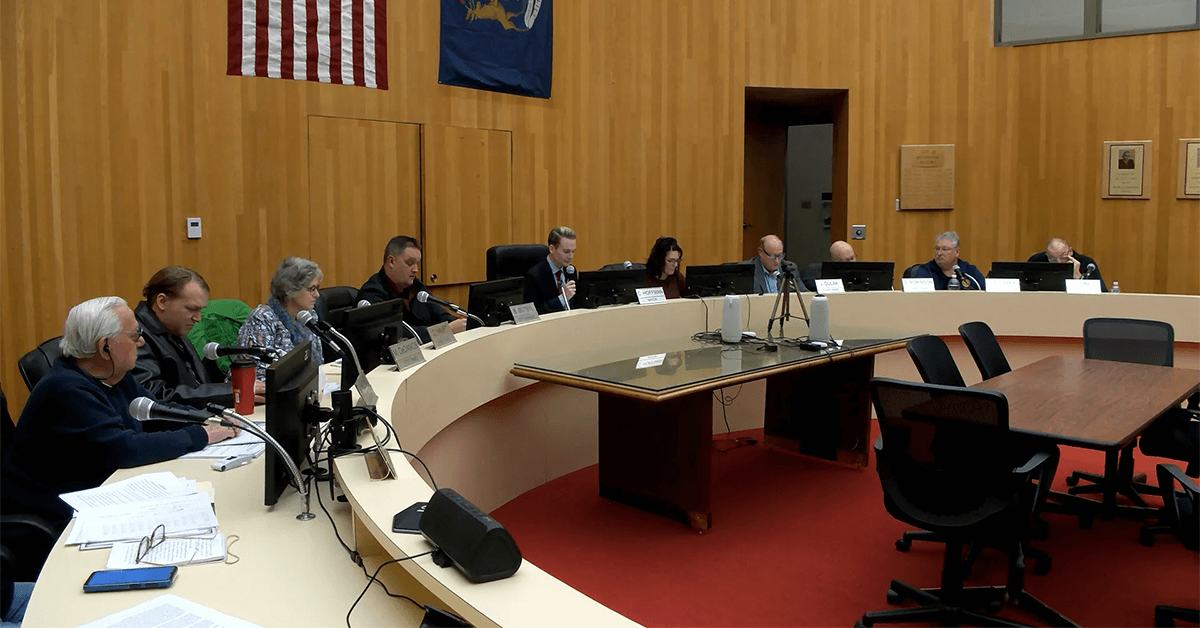Algonac to Consider Reversing Marijuana Establishment Ban in Upcoming Vote

On February 27th, Algonac, Michigan, will see its voters making a pivotal decision that could reshape the city's approach to marijuana establishments. At the heart of this upcoming ballot is a proposal aimed at repealing the city's existing prohibition on marijuana businesses and introducing a new ordinance to permit the operation of one marijuana dispensary. This dispensary, if approved, would be licensed to offer both medical and adult-use marijuana, situated within a commercially zoned district of Algonac, thereby aligning the city with the state of Michigan's regulatory framework for cannabis provisioning centers.
This significant voter-initiated measure emerged after a successful petition drive, which saw the submission of petitions bearing 353 valid signatures to the city clerk—surpassing the threshold required to bring the matter before the electorate. The Algonac City Council, recognizing the petition's compliance with the necessary legal standards, agreed in December 2023 to place the proposal on the February ballot.
The affirmative vote on this proposal would initiate a series of procedural steps aimed at integrating the new dispensary into the city's commercial landscape. The process includes drafting a new zoning ordinance, a crucial step that would involve the city attorney and require the planning commission's review and recommendation before the city council's final approval.
This moment represents a critical juncture for Algonac, as it contemplates joining other Michigan communities that have embraced the economic and therapeutic potentials of regulated marijuana establishments. It's a decision that not only reflects the changing attitudes towards cannabis in Michigan but also underscores the community's desire to have a direct say in its local cannabis policy.
Detroit Grandmother Exposes Illegal Marijuana Sales to Minors

In a determined effort to address illegal marijuana sales to minors, a Detroit grandmother, Vivienne Miles-Jackson, orchestrated an undercover operation to gather evidence against a local hookah shop accused of selling cannabis to her 15-year-old grandson. The establishment, Detroit Hookah, located on the east side of Detroit and in close proximity to John J. Pershing High School, has no license to distribute marijuana, raising significant concerns over the safety and legality of its operations.
Motivated by a deep concern for the well-being of her grandson and potentially other minors, Miles-Jackson equipped her grandson with a camera to document his purchase of marijuana from the shop. This strategic move was aimed at securing incontrovertible proof of the illegal transactions purportedly taking place at the establishment.
Upon successfully capturing the transaction on video, where her grandson was shown exchanging money for a sealed package of marijuana, Miles-Jackson promptly reported the incident to the Detroit Police Department (DPD), providing them with the recorded evidence. The subsequent police investigation into Detroit Hookah unveiled a startling discovery: the seizure of over 11,000 grams of marijuana, an amount likened to a garbage bag full of the substance, as stated by DPD Commander Eric Decker.
Despite the shop owner's absence during a visit by reporters and his cousin's dismissal of the video as a setup, claiming no weed is sold at the shop, the police's findings underscored the gravity of the situation. Commander Decker highlighted the initial steps taken against the business owner, including the issuance of several tickets, and hinted at the possibility of further action pending a comprehensive investigation.
This case emerges amidst a broader crackdown on illegal activities in establishments such as gas stations, convenience stores, and hookah lounges by DPD's revamped Vice Enforcement unit. The unit's proactive approach involves regular inspections and undercover operations to ensure compliance with licensing requirements, aiming to curb illicit practices like the unlicensed sale of marijuana.
The ongoing investigation into Detroit Hookah serves as a stark reminder of the challenges facing law enforcement and communities in safeguarding minors from illegal drug transactions, as well as the crucial role of vigilant citizens in assisting police efforts to uphold the law.
Menominee City Council Proposes Full Settlement to End Marijuana Lawsuits

In a significant development within the Menominee city council's ongoing legal entanglements with local marijuana dispensaries, a special meeting held on Wednesday night indicated potential strides towards resolving disputes that have spanned years. The meeting, which was not open to the public, concluded with the council members announcing their decision to reject a partial settlement proposal from two dispensaries, Rize U.P. and The Fire Station (TFS), who are currently suing the city. Instead, the city has proposed a comprehensive settlement offer, aiming to put an end to the legal battles.
This move comes after a judge mandated mediation between the parties at the start of the year, with the dispensaries proposing a partial settlement in late January. The timing of these negotiations is crucial, as the license renewals for Rize and TFS are approaching on February 29th. An intriguing aspect of the renewal process is a requirement for applicants to withdraw any ongoing lawsuits against the city to secure their operational status, thus putting pressure on the dispensaries to find a resolution.
Councilmember Michael Dedamos voiced a reluctance to see any parties severely impacted, emphasizing a preference for negotiation over any loss of licenses or employment. The initial offer from Rize and TFS included dropping all claims except those related to the Michigan Regulation and Taxation of Marijuana Act. In return, they sought stricter zoning laws, special allowances, and exemptions for current dispensaries, which would essentially allow them to maintain a dominant market position.
Mayor Casey Hoffman expressed a firm stance against accepting any settlement that would unduly favor the suing dispensaries, labeling the initial proposal as a "Trojan Horse." The counter-offer made by the city reportedly encompasses a full settlement of all claims and introduces terms that might allow dispensaries to relocate, albeit with restrictions on possible locations.
The response from other local dispensaries has been mixed, with some advocating for a hard line against the suing parties to prevent undue advantages. Public comments at the meeting reflected a broad spectrum of views, with some emphasizing the need for resolution and others criticizing the proposed settlement for offering unilateral benefits to Rize and TFS without adequate returns for the city.
The legal stance of the city, as articulated by council members and reflected in public sentiment, underscores a collective desire to conclude the lawsuits without compromising the city's interests or the competitive landscape of the local marijuana industry. As negotiations continue, the outcome of this dispute will likely have significant implications for the regulatory and operational dynamics of marijuana dispensaries in Menominee.
The city's counter-proposal aims to balance the need for regulatory compliance and fair competition among dispensaries. As the community awaits a response from Rize and TFS, the resolution of this conflict could mark a pivotal moment in the city's relationship with its marijuana businesses.
SEC Continues Legal Battle Against Michigan Cannabis Fraud Case

In a significant development within the Michigan legal landscape, the Securities and Exchange Commission (SEC) is persisting with its fraud case against Robert Shumake, Jr., despite facing challenges related to bankruptcy claims and the uncertain prospect of financial restitution through fines. The case, which has garnered attention due to its implications for investor protection and the integrity of crowdfunding initiatives, underscores the complexities of enforcing securities law in the burgeoning cannabis industry.
The Allegations Unfold
The crux of the SEC's allegations, first brought to light in 2021, involves fraudulent activities connected to unregistered crowdfunding offerings. Robert Shumake, Jr., along with Nicole Birch and Willard Jackson, is accused of orchestrating deceptive schemes through their involvement with two companies: Transatlantic Real Estate and 420 Real Estate. These entities were purportedly engaged in the cannabis and hemp sectors.
The SEC's complaint details how Shumake, in collaboration with Birch and Jackson, managed to raise substantial sums from retail investors—$1,020,100 through Transatlantic Real Estate and $888,180 via 420 Real Estate. However, instead of channeling these funds towards their stated investment purposes, the trio allegedly diverted them for personal use, betraying the trust of their investors.
The timeline of these unauthorized securities offerings spans from September 2018 through June 2020, with Shumake purportedly playing a pivotal role in both ventures. His attempt to conceal his involvement, due to a prior criminal conviction related to mortgage fraud, involved positioning Birch and Jackson in leading roles within the respective companies, thus maintaining a facade of legitimacy.
Legal and Financial Entanglements
Complicating the SEC's efforts to hold Shumake accountable is his strategic maneuver to declare bankruptcy, a move that potentially shields him from financial penalties. The SEC, however, argues that its enforcement actions are exempt from bankruptcy protections, emphasizing its mandate to safeguard investors and maintain market integrity. The agency contends that its pursuit of justice in this case falls within its "police power," a principle that transcends the limitations typically imposed by bankruptcy proceedings.
Adding a layer of intrigue to the proceedings is Shumake's decision to legally change his name to Bobby Shumake Japhia in May 2023. The SEC's attempts to adapt its documentation to reflect this change have been hampered by a lack of cooperation from Japhia's legal counsel, further complicating the legal landscape.
The Path Forward
As the case progresses, the departure of Japhia's legal representation due to unpaid bills underscores the financial instability surrounding his defense. The law firm's withdrawal, citing debts exceeding $36,000, signals a turbulent phase in the litigation process. Despite these challenges, the SEC remains committed to its mission of penalizing and preventing fraudulent activities within the securities market, highlighting the case's broader implications for regulatory oversight and investor protection.
This ongoing legal battle not only emphasizes the regulatory challenges associated with crowdfunding and investment in the cannabis sector but also serves as a cautionary tale for investors and industry stakeholders about the importance of due diligence and the risks of fraudulent schemes.
Kalamazoo Invests in Cannabis Education and Social Equity with New Chamber

Kalamazoo, a city known for its progressive steps towards integrating the cannabis industry into its local economy, is taking another significant stride. In a recent move, the city has allocated a portion of its cannabis tax revenue towards fostering education and job training within the cannabis sector for its residents. This initiative underscores a growing trend among municipalities to harness the economic potential of legal cannabis while promoting social equity and community education.
A three-year contract, valued at $990,000, was awarded to the Detroit Cannabis Project (DCP) earlier this month by the City Commission. This collaboration aims to establish a "Social Equity Cannabis Chamber" in Kalamazoo, an entity designed to mirror the functions of a traditional chamber of commerce but with a focus on the unique needs of the cannabis industry and its clientele.
Antonio Mitchell, Kalamazoo's Economic Development Director, elaborated on the chamber's mission, emphasizing its role in offering resources specifically crafted for cannabis businesses and their customers. In 2022, Kalamazoo received $881,300 in revenue from marijuana business fees and taxes from the state. A 2020 ordinance mandates that at least 25% of these funds are dedicated to initiatives such as training for people of color in owning and operating marijuana businesses, community outreach, and educational programs about cannabis use, aligning with the city's broader priorities.
The Detroit Cannabis Project, under the leadership of founder Rebecca Colett, brings a wealth of experience and resources to this partnership. Since its inception in 2020, DCP has aimed to enhance diversity within the cannabis industry. The project has evolved into an incubator program, offering a variety of services including cannabis health and safety classes and support for those interested in entering the cannabis market, whether through employment or entrepreneurship.
Addressing the persistent stigma surrounding cannabis, particularly in communities adversely affected by the war on drugs, Colett highlighted the importance of accessible information and education. DCP's approach allows community members, including those from religious or neighborhood organizations, to seek advice and information from medical professionals about cannabis.
Beyond educational efforts, DCP intends to facilitate networking between the cannabis sector and other businesses in Kalamazoo, fostering a synergy that can lead to mutual growth and opportunities. This initiative is part of a broader vision to integrate the cannabis industry more seamlessly into the local economy, emphasizing relationship-building as a cornerstone of success in this unique field.
Despite the lack of federal legalization, Michigan's cannabis market is thriving, with 574 licensees generating $1.8 billion in sales in 2022. Kalamazoo is leveraging this vibrant industry to promote education, awareness, and positive community engagement, according to Mitchell. The partnership with DCP is seen as a pathway to achieving these objectives, ensuring the cannabis industry contributes constructively to the city and its residents.
An inaugural event planned for this spring by DCP will mark the beginning of this ambitious program, though specifics are still being finalized. With established partnerships in other Michigan cities such as Grand Rapids and Battle Creek, DCP's experience and existing networks in West Michigan are expected to enhance the effectiveness of the Social Equity Cannabis Chamber in Kalamazoo.
Governor Whitmer's Budget Plan Enhances Support for Michigan's Cannabis Sector

In a recent announcement, Cannabis Regulatory Agency (CRA) Executive Director Brian Hanna expressed his support for Governor Gretchen Whitmer's Fiscal Year (FY) 2025 Executive Budget Recommendation. This budget, praised for its balanced and fiscally responsible approach without imposing new taxes on Michigan residents, earmarks additional support for several of the CRA's pivotal initiatives. These initiatives are aimed at bolstering the state's cannabis market and include a range of measures from regulatory reforms to enhanced enforcement efforts against illegal operations.
Key highlights of the budget supporting the CRA's initiatives are as follows:
- The elimination of the monthly subscription fees for licensees to access the statewide monitoring system, reducing the financial burden on legal cannabis businesses.
- Increased support and resources to tackle illicit cannabis activities, aiming to protect the integrity of the state's legal cannabis market.
- Enhanced enforcement and improved workload management within the Licensing Division to streamline operations.
- Shortened wait times for fire safety inspections, thereby increasing safety and compliance efficiency for businesses.
Executive Director Hanna emphasized the importance of these initiatives, stating they are crucial for fostering a thriving, expanding legal cannabis market. By removing the monthly subscription fees for the statewide monitoring system, the CRA aims to invest in the stability and long-term success of Michigan's legal cannabis market. Additionally, the focus on combating illicit activities, bolstering enforcement efforts, and improving safety measures through quicker fire inspections is expected to support the state's licensed cannabis businesses significantly.
Robin Schneider, Executive Director of the Michigan Cannabis Industry Association (MiCIA), also commended Governor Whitmer's budget. Schneider highlighted that the budget addresses several critical needs of the industry, including safety enhancements, reduction in regulatory costs for businesses, and increased profitability for law-abiding operators through stricter enforcement against illegal market activities. Schneider appreciated the CRA's responsiveness to industry concerns and its proactive measures to improve the sector.
This budget represents a significant step forward in Michigan's efforts to regulate and support its legal cannabis industry, with the state showing a commitment to addressing the needs of both businesses and consumers while ensuring a safe, regulated market.


 Helpful Links
Helpful Links